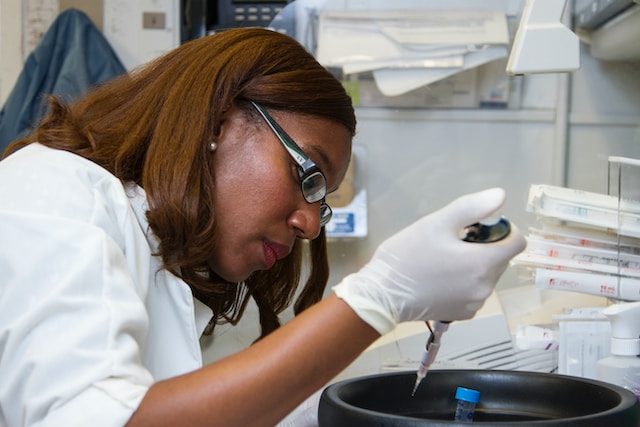They say 40 is the new 30, which is why an increasing number of couples want to start a family in their forties rather than their thirties.
So, how come our biological clocks didn’t get the memo?
Unfortunately, while the average life expectancy grows, a woman’s fertile window hasn’t changed much–if at all. By the time a woman hits 35, she’s considered of “advanced maternal age.” And by the time she hits 40, the chances of her falling pregnant naturally each month drop to five percent (from 20 percent in her 30s).
That’s why so many couples are seeking help from specialists and services with Donor Egg Bank USA™. Through options like frozen donor eggs, couples can start a family when they’re ready, while still enjoying a natural pregnancy and everything that comes with it.
Table of Contents
Challenges Associated with Women Over 40 Conceiving Naturally
As we’ve already noted, getting pregnant in your forties tends to be a lot more complicated than it would have been in your thirties–and even that’s more complicated than it would have been in your twenties. While some women may conceive as quickly in their forties as they did in their twenties, the chances of this happening do reduce significantly as they get older.
Getting pregnant in your forties also comes with other risk factors that are worth thinking about. This includes gestational diabetes, high blood pressure, an increased risk of miscarriage, and thyroid disease. Other potential complications include C-section births, the baby having a low birth weight, preeclampsia, and premature labor.
However daunting the array of complexities, risks, and difficulties may appear, there exist choices at your disposal that empower you to progress towards embarking on the journey of parenthood. Discussing the best possible options for you with a fertility specialist or your doctor is a great place to start.
Recommended Fertility Treatments for Women Starting a Family Over 40
Many 40-something-year-old women will suffer from low egg quality and/or quantity which can have a detrimental impact on their ability to conceive naturally. It’s also why traditional IVF routes using the person’s eggs may not be viable. In these cases, donor eggs, adoption, or surrogacy may be presented as other alternatives.
If there are no known issues with your eggs but other complications prevent you from conceiving naturally, surrogacy could be a viable route for you. It allows you to use both your eggs and your partner’s sperm to bring your beautiful baby into the world. Adoption is also another good option if you may have received a fertility diagnosis.
Yet, among these alternatives, only a singular choice grants women the ability to experience pregnancy, give life to their child, and retain the possibility of breastfeeding: egg donation.
Each of these options comes with its advantages and disadvantages, which is why it’s essential to take plenty of time to choose the right path for you, your partner, and your future family.
Choosing Donor Eggs to Start Your Family
If you do opt for using donor eggs when starting your family, you’ll have several considerations to make. First, will you use a donor you know (e.g. a friend or family member) or will you opt for an anonymous donor from a clinic or egg bank? If the latter, will you choose fresh or frozen donor eggs?
Many women in their forties find frozen egg donation the best option due to its great flexibility and cost-effectiveness. Unlike fresh donor eggs (in which a donor’s cycle needs synchronizing with the recipient), frozen egg donation fits into the parent-to-be’s schedule. Yes, there will be several appointments and treatments, but you can choose a time that fits in with you and you can plan so it causes minimal disruption to your work and social life.
Frozen egg donor banks have vast databases of potential donors, too. This allows you to carefully select a donor that’s right for you and your future family. Opt for someone that boasts the same unique traits that you do or find someone who possesses all of the qualities you hope your child will have.
Once you’ve found the perfect donor for you, you’ll start a course of hormones to prepare your uterus for the implantation of an embryo. Meanwhile, the donor’s egg is fertilized with your partner’s (or a donor’s) sperm. After around five days, an embryo is either transferred to your uterus or it can be biopsied, frozen, and then transferred during a frozen embryo transfer (FET). Just two weeks later you’ll return to the clinic for a pregnancy test.
Becoming a Mom in Your 40s
Having dedicated time to your profession, adhered to your life path, explored the globe, or patiently awaited the right companion, there exists no impediment to embarking on the subsequent phase of your voyage and embracing motherhood in your forties. With a plethora of choices within reach, you can relish the experience of parenting akin to any woman in her twenties, thirties, forties, or even fifties.
And the best bit?
After doing “life” first, you’re free to enjoy the next step in this amazing life journey–parenthood

